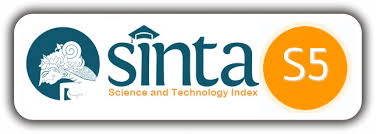Review Of The Sharia Maqashid On Provisions Of The Midwife Professional Self Practice
DOI:
https://doi.org/10.55642/phasij.v2i02.247Keywords:
Midwifery Law, Maqasid Syariah, Independent Practice, MaslahahAbstract
Midwife is a profession obtained by someone who has completed midwifery education and is officially recognized, and has the competence to carry out practice. Midwifery Law number 4 of 2019, philosophically aims to provide goodness to midwives and the community. This study aims to explain the provisions of independent practice for midwives using the maqashid shari'ah review. The maqashid shari'ah itself is one of the methods contained in the philosophy of Islamic law. Therefore, the data used is in the form of literature, in the form of Law Number 4 of 2019 concerning Midwifery, as well as supporting library references. Based on the description of the analysis, it was found that there was a separation of practice authority between vocational midwives and professional midwives. Professional midwives can practice independently, while vocational midwives are not allowed to open independent practice. Based on the maqashid shari'ah review, the maintenance of religion, reason, soul, property, and offspring, seeks to provide protection and benefit both to clients and to midwives. The results of the study concluded that the Midwifery Law provides a separation of authority for practice aimed at providing a stimulus so that midwives increase their knowledge and abilities. The review of maqashid shari'ah provides an overview of the new midwifery law that provides benefits to clients and midwives.
References
Iswandi, A. (2014). Maslahat Memelihara Harta Dalam Sistem Ekonomi Islam. Jurnal Sosial Dan Budaya, 22.
P. (N.D.). Undang-Undang Kebidanan Nomor 4 Tahun 2019. Jakarta: Pemerintah Republik Indonesia.
P. Pemerintah. (N.D.).
Pr. (2019). Undang-Undang Kebidanan Nomor 4 Tahun 2019. Jakarta: Pemerintah Republik Indonesia.
Pr. (2019). Undang-Undang Kebidanan Nomor 4 Tahun 2019. Jakarta: Pemerintah Republik Indonesia.
Rahmawati, T. (2012). Dasar-Dasar Kebidanan. Jakarta: Prestasi Pustaka Raya.
Rizal. (2015). Eksistensi Harta Dalam Islam (Suatu Kajian Analisis Teoritis). Jurnal Penelitian, 96.
Tresnawati, F. (2013). Asuhan Kebidanan. Jakarta: Prestasi Pustaka Raya.
Undang-Undang Kebidanan Nomor 4 Tahun 2019 (2019).
















